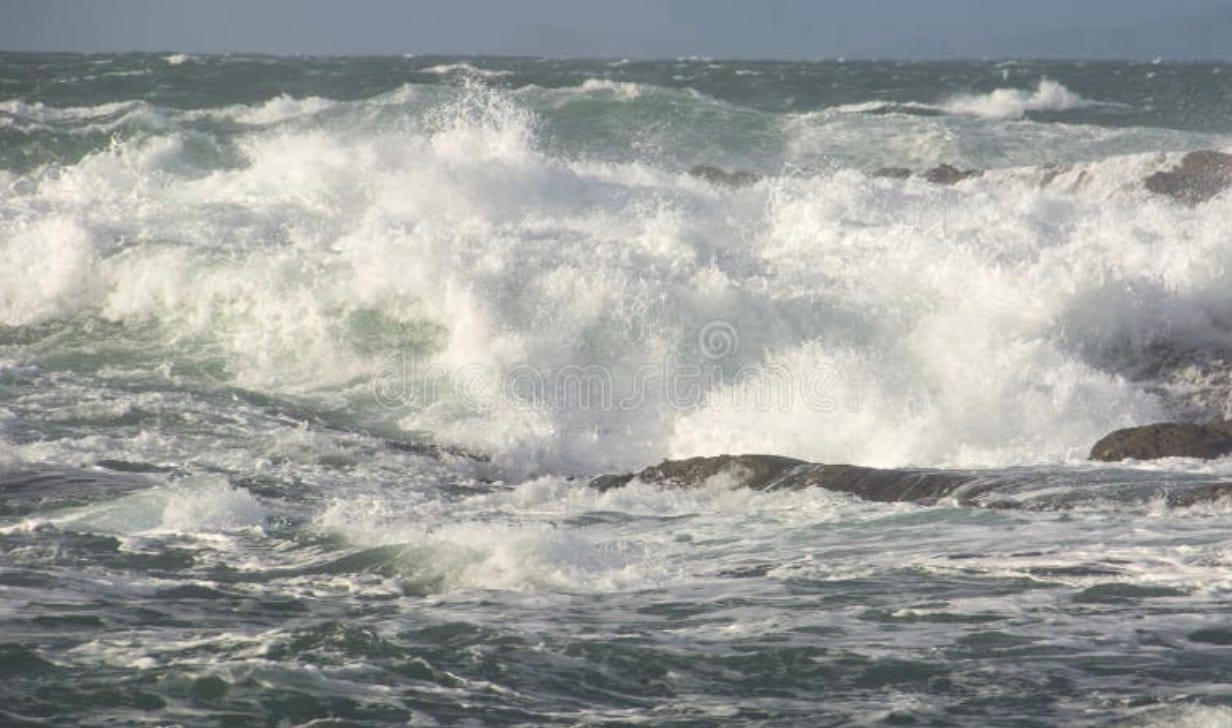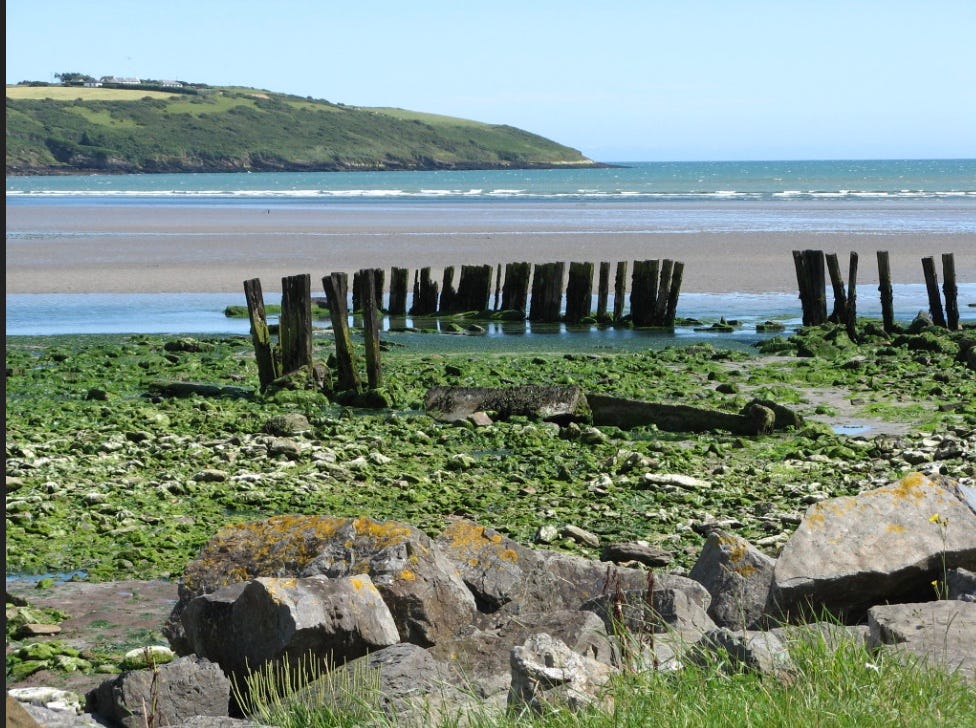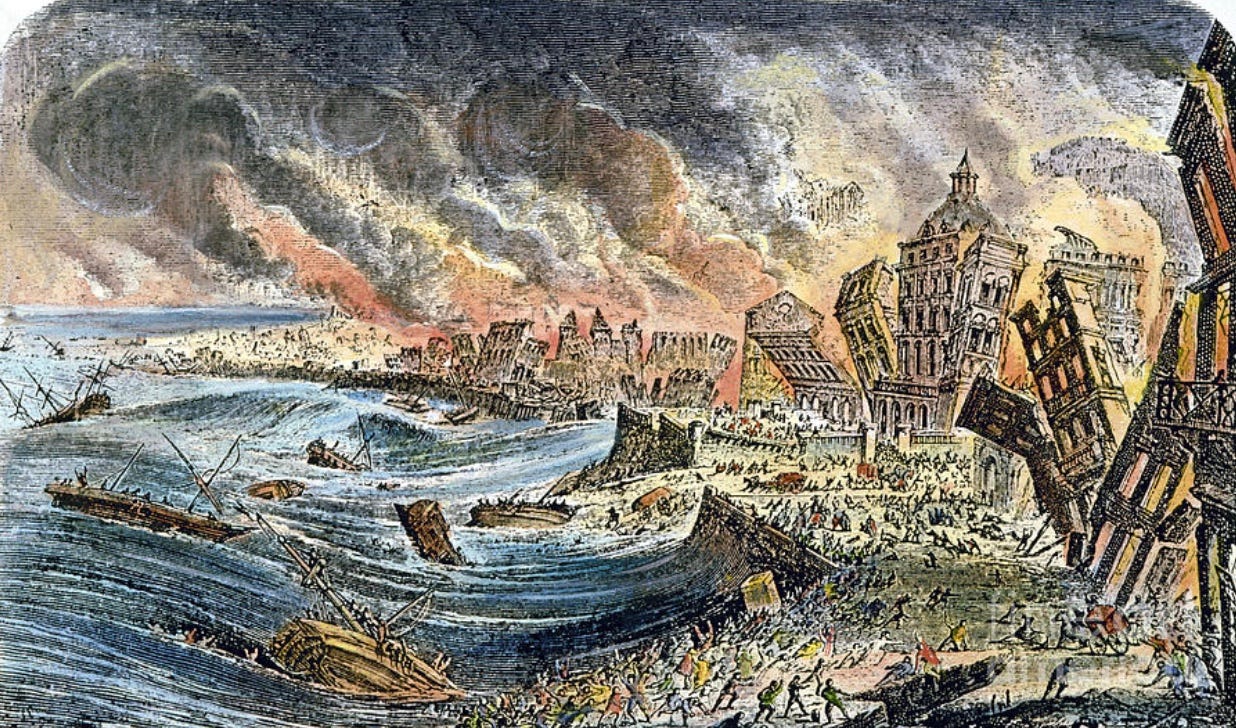Strange days by the sea
Garretstown Beach in Cork saw mountains of white foam and smooth beach pebbles scattered across the road as Storm Kathleen came and went. The storm seemed to live beside the sea. I sat at my friend's house that morning, a calm breeze about, and I thought maybe the storm had bypassed Cork—but all the action was down by the beach. Kathleen was rolling in from the Atlantic. She was hot-tempered and bothered.
I helped pull a stranded day tripper and his motorbike out of the sea-washed, rock-strewn road where he had moored himself. ‘I shouldn’t have come this way!’ he hollered, and when we got him to safety, he hollered again over the churning ocean and spray. ‘Jesus lads, thanks; I owe you a pint.’ Car after car stopped and turned around, abandoning any attempts to drive the coast road; meanwhile, children played in the snow like flurrys of white foam spinning in the air. Strange days, indeed.
It’s only a matter of time until any Irish person mentions the weather to you or indeed writes about it. So I’m writing about it now. These last few weeks have felt like November to me. I know what November feels like; I know the level of light; and most of all, I know what the ground will be like—wet and cold, without a chance of drying until many months ahead. Yet here we are in early April, just on the other side of the wettest March ever recorded, and I’m sinking into the soil. The farm I live beside continues to feed the cows with hay inside the sheds. I ventured to ask the farmer if it was as bad as they were saying, and he managed a distressed and exacerbated ‘Don’t talk to me!’ in response, then drove off with another trailer full of hay.
As a gardener for 14 years, I’ve consistently timed the first grass cut for the last week of March, when the ground, though still moist, is on its way to workability, to dryness, and to some warmth. Not this year. My feet sank down into the earth, the lawnmower skidded along the slope, and it did more damage than good. Are the days getting longer? I feel like we are in the grip of some roaming beast hurling wild weather and unpredictability at us.
It’s Sunday now, the day after the storm. On Harbour View Beach, I can hear the distant roar of the waves, which sounds like a deep storm drain passing its capacity. The gust of wind is pushing the marram grasses to the ground, only for them to spring back up. Where do all the wading birds go? I counted 70 geese on the water just the other day, dipping their delicate heads into the shallows. This morning, just a few stubborn seagulls are staring into the wind that hasn’t let up yet. You know things are unsettled when the crows look distressed, each rising into the air only to be whipped back as though pulled by a rope.
In my eight years living beside this stretch of beach, I’ve watched the dunes crumble away, big blocks of sand collapsing into the water. The erosion is accelerating. At this pace, the salt marsh behind them, an area of special significance and biodiversity, will be exposed to the full force of the tide.
Nature is taking what nature gives, so there is no change. There is no longer a harbour at Harbour View. Its faith was sealed on November 1st, 1755, when the most powerful and destructive earthquake ever recorded in Europe struck off the coast of Lisbon. A tsunami and numerous aftershocks followed the earthquake, further compounding the devastation. That tsunami, reaching 15 metres, filled Harbour View with sand. We lost a harbour, Lisbon lost a city, and thousands of lives were lost.
But these are strange days. Humanity is untethering itself from predictability. Extremes have become the new norm. The North Atlantic is heating up, currents are slowing down or shifting direction, and the Northwest Passage is melting. Ireland is becoming wetter. It’s a dangerous game we are playing. Playing God is a dangerous game. John Moriarty liked to say that the story of Christianity is the story of man’s rebellion against God. We are still rebelling, with all our knowledge and enthusiasm, but it is a volatile force when the wisdom to direct it is not present.
This is a very big story, and we are part of it.
Be hopeful, be humble, plant a tree, help a friend, and enjoy the fantastic wonder that it is to be alive these days.
So with these thoughts on my mind, I was heartened to hear the news that Ireland is considering recognising the rights of nature and the human right to a healthy environment. For several decades, the Rights of Nature movement has been gathering momentum. I became aware of it when I lived in Almeria, in southern Spain. They were experiencing their own acute situation of drought, exacerbated by extensive olive plantations that were overexploiting precious groundwater. My friend David Dene took the fight all the way to the U.N. in Geneva and has since become a world-recognised expert in the field. If Ireland approves the bill, we would become the first European country to constitutionally recognise that ecosystems, similar to humans and corporations, possess legal rights. This is an important step. I am watching the developments closely.
You can learn some more about this movement in the TedTalk below.
And until next time.
Be well






